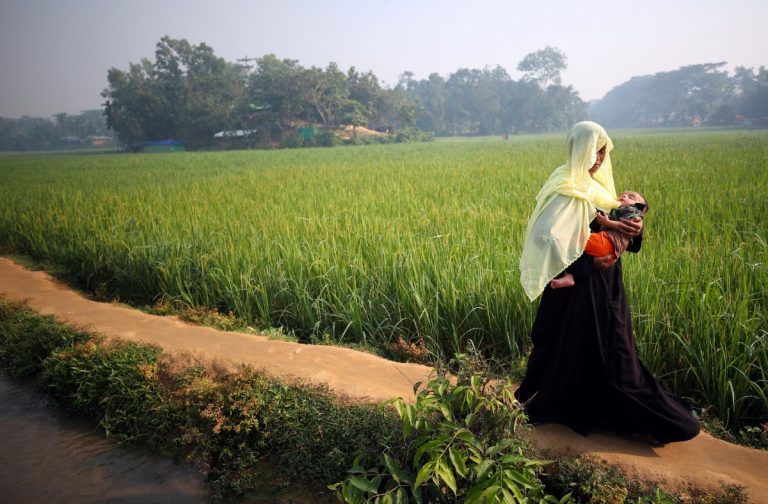
Two prominent activists and human rights educators are undertaking a tour of the United States to promote knowledge and understanding of the humanitarian crisis facing Rohingya Muslims in Burma (Myanmar).
Burmese activist Myo Win and American documentary filmmaker Jeanne Hallacy are currently embarking on a speaking tour of the US including dates at the United Nations, Stanford University and Harvard University.
“Some people in the US understand what is happening in Rakhine but the general public are not so much aware of it, and we aim to meet various people including students and politicians and high-level people in Washington DC,” Myo Win told Burmese news site Mizzima.
Honored to view a film and moderate a panel on the #RohingyaCrisis with @tunkhin80 @YangheeLeeSKKU & Myo Win at @USUN @franceonu today. pic.twitter.com/CrWPao4n2G
— Robert Bank (@robertevanbank) October 26, 2017
More than 600,000 Rohingya refugees have fled into Bangladesh from Burma’s Rakhine State since Aug 25, after attacks on Burmese security force outposts sparked “clearing operations” by the Tatmadaw army.
Human rights groups, the United Nations and numerous governments have accused Burma of gross rights abuses against Rohingyas including arson, extrajudicial killings and rape. The UN Human Rights chief has called it “a textbook example of ethnic cleansing.”
During their tour, the activists are showing audiences Hallacy’s 20-minute documentary Sittwe – which follows the lives of two 16-year-olds, a Muslim girl and a Buddhist boy living in refugee camps in the Rakhine.
Jeanne Hallacy hopes that “Sittwe” will help people to understand the cycle of violence in the country https://t.co/7CYsNW1sUB
— The Economist (@TheEconomist) September 9, 2017
According to a review of the film in the Economist, “the Muslim girl sparkles, delivering messages of tolerance that could be taken directly from the Buddha’s tenets. The shyer Buddhist boy seems more receptive to extremist rhetoric.”
US lawmakers have recently called upon Donald Trump’s administration to impose sanctions upon Burma in light of atrocities in the Rakhine.
A letter from more than 40 members of the House of Representatives to Secretary of State Rex Tillerson urged him to “suspend all international military weapons transfers to the Burmese military and to impose strong multilateral sanctions against specific senior Burmese military officials associated with the gross human rights abuses.”
The United States says it has donated US$40 million to humanitarian aid efforts in Bangladesh.
“It is important for citizens in Burma and in countries around the world to step back and see the progress that still needs to be made on these issues,” said Hallacy regarding anti-Muslim sentiment that has spurred the Rohingya crisis.
“The basis of any racism, hatred and intolerance of any group whatsoever … that is always rooted in fear. And fear grows without education.”
Liked this? Then you’ll love…
Aung San Suu Kyi portrait removed from Oxford college amid Rohingya crisis







